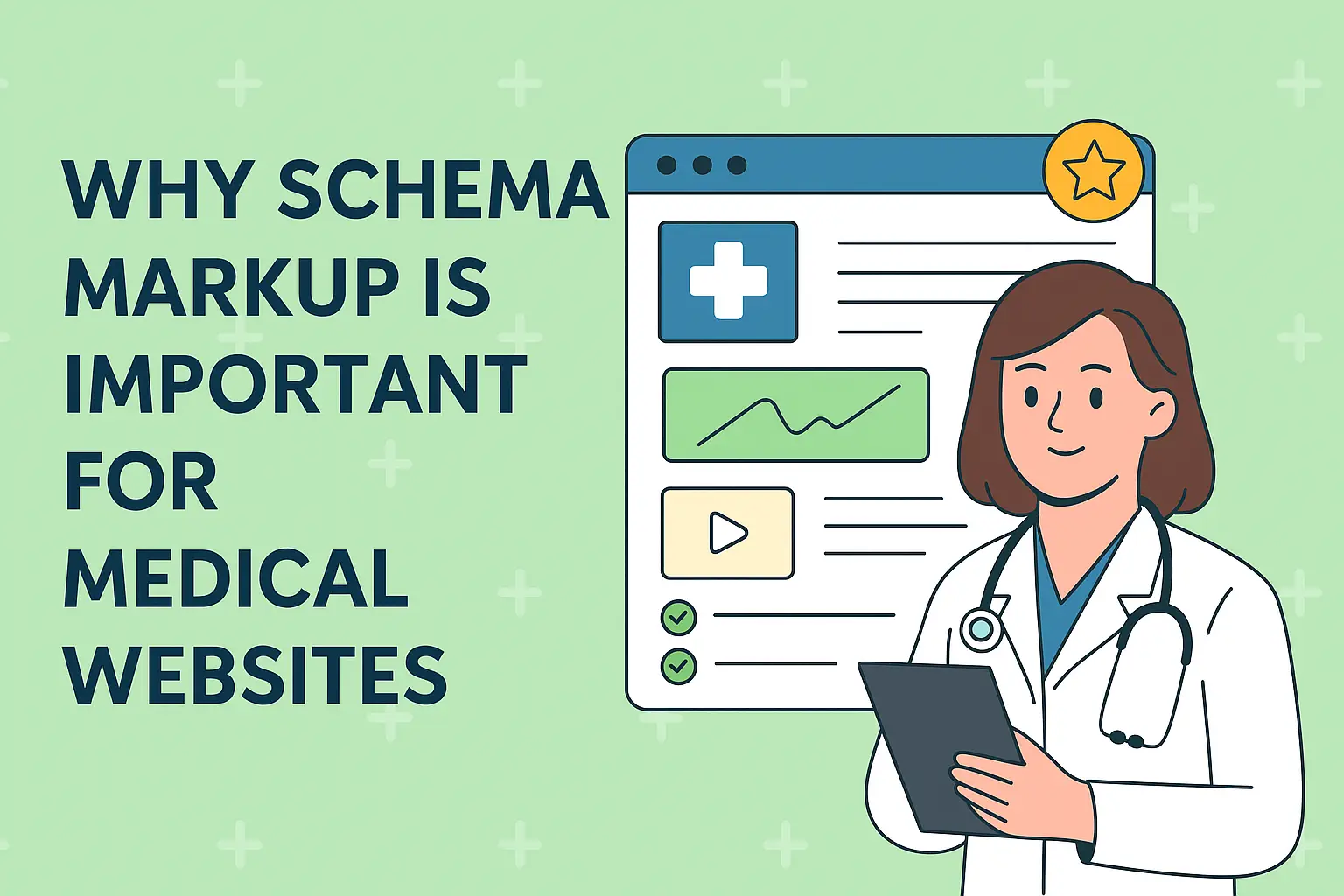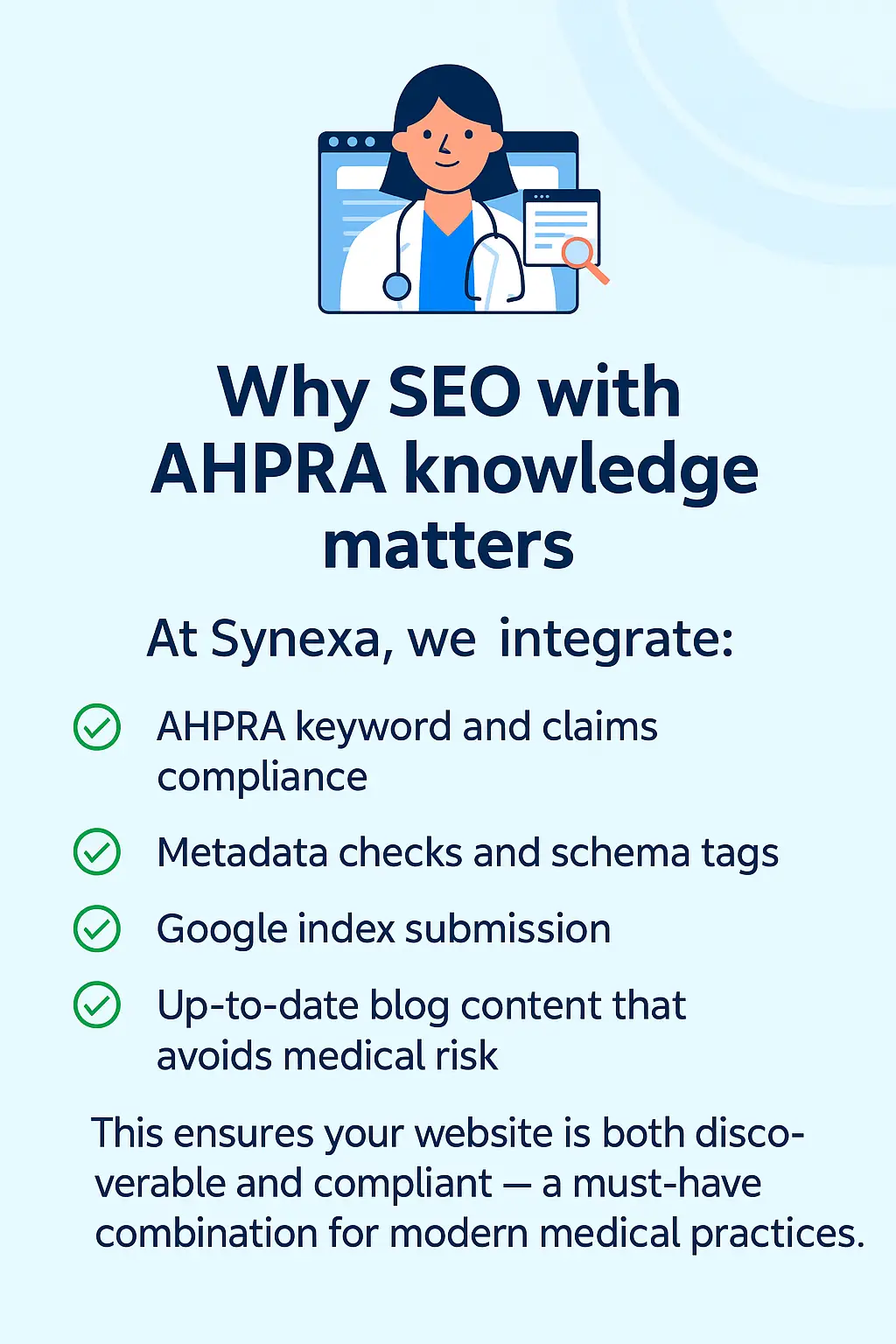
What Is Schema Setup — And Why It’s Essential for Medical Websites
If you’re a medical professional with a website, you might’ve heard of something called “schema markup” or “structured data.” It sounds technical — and it is — but it can make a major difference in how your clinic is seen and found online.
Let’s break it down in plain English.
🧠 What is Schema?
Schema markup is a special type of code added to your website that helps Google and other search engines understand your content more clearly.
Think of schema like a set of labels or tags. These tags tell search engines:
“This is a clinic.”
“This is a medical practitioner.”
“These are the opening hours.”
“This is an article about asthma.”
Without schema, your website might be a black box to Google. With schema, it becomes a clearly labeled filing cabinet.
💡 Why Does Schema Matter for Medical Practices?
Healthcare is a high-trust industry, and patients often seek fast and clear answers when searching.
Schema allows Google to:
Display rich results like clinic hours, contact details, service categories, and articles
Highlight practitioner profiles (name, specialty, qualifications)
Show FAQ answers directly in the search results
Index your health articles properly using Medical WebPage and Medical Condition schema
This helps your clinic stand out and build trust before a patient even clicks on your website.
✅ What Can Be Shown — Without Violating AHPRA?
AHPRA (Australian Health Practitioner Regulation Agency) has strict guidelines around what can and can’t be shown on medical websites, especially when it comes to testimonials.
Instead of showing patient reviews or endorsements (which are not allowed), schema can highlight:
Practitioner credentials and titles
Available services and clinic features
Health information articles or blog posts
Operating hours and locations
Contact information and telehealth availability
FAQ sections about procedures, billing, or access
This ensures your content is compliant, useful, and presented professionally in Google’s search results.
🩺 Example Schema Elements Used for Medical Websites
Medical Clinic
Physician / General Practitioner
Medical WebPage / Medical Condition
FAQPage
LocalBusiness
These elements help create a more detailed and accurate listing for your practice on Google — without relying on non-compliant patient testimonials.
🚀 What Happens When You Don’t Use Schema?
Your website may still appear on Google… but without rich results
You miss the chance to show helpful snippets like clinic hours, FAQs, or service listings
Competing clinics using schema may look more trustworthy and professional
Search engines may struggle to classify your content correctly — affecting your SEO
📦 Our Schema Setup Service (Included in All SEO Plans)
At Synexa Web Design, all our SEO plans include full Schema Setup, specifically tailored for:
General Practices
Allied Health Providers
Specialists and NDIS-related clinics
Our setup includes:
Health-focused schema (MedicalWebPage, Physician, etc.)
AHPRA-compliant structured data
FAQPage tagging (if applicable)
LocalBusiness markup for Google Maps accuracy
🧩 Optional Add-ons to Boost Schema Power
You can also choose add-ons to go deeper:
Google Review Integration (without displaying testimonials): $49
FAQ Schema Setup: $99
Doctor Bio Snippet SEO: $79
Multi-location SEO Schema: $99/month per extra location
📝 Final Thoughts
Schema is no longer a “nice to have” — it’s a must-have for medical websites that want to remain compliant, discoverable, and credible.
If you want your practice to appear clearly, professionally, and accurately on Google, contact us today to discuss setting up schema on your site.


